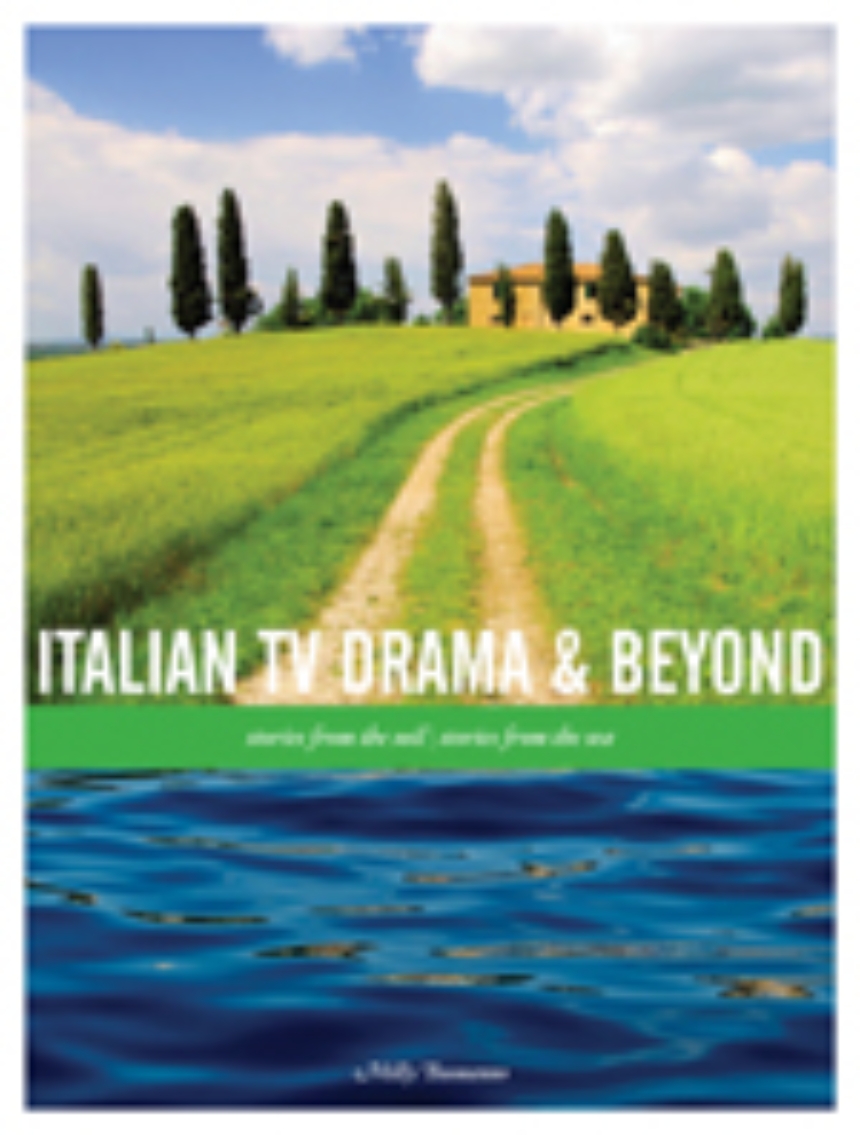Distributed for Intellect Ltd
Italian TV Drama and Beyond
Stories from the Soil, Stories from the Sea
Since its inception in the mid-1950s, the television drama has emerged as the dominant medium of contemporary storytelling in Italian society, with a steadily increasing supply of locally produced domestic dramas offering up competing versions of Italian identity. Informed by the nation’s rich historical and cultural heritage—as well as a string of notable foreign imports—the narratives discussed here offer much insight into Italian society and highlight the wide array of television programming available outside of Britain and the United States.
Reviews
Table of Contents
Introduction
Invisible Italian TV drama
The structure of the book
1. Building the Nation: The Origins of Italian TV Drama
The words to say it
The domestic stage
Literary adaptation
Electronic library
The implication approach
The foreign sources of a national genre
Literature and history
2. The Cinematic Turn and the Americanization of the Television Landscape
Keeping the cinema at bay
The cinematic turn
The rise of the miniseries
The flood of American imports
The Italian response to Dallas
3. The Political Career of a Popular Fiction: La Piovra (The Octopus: The Power of the Mafia)
A phenomenon of popularity
Bond and beyond
An intertextual octopus
The origins of La Piovra’s success
Mafia Plots
Social melodrama
The fascination of the loser
Italian-style serial
Television event
The Mafia and politics
4. A Place in the Sun: The First Italian Soap Opera
Escape from fiction
Turning point
The close encounter of local and global
An Italian sense of place
A seminal story
5. Mimetic Heroes and Ironic Leaders: The Genesis and Evolution of Italian Police Drama
The season of the detective story
Stories from the sea
Stories from the soil
The funny detective
The hero is ’one of us’
A ’heritage’ trilogy
Squads
The girls with a gun
Women on top
The merging of sailor’s and peasant’s storytelling
6. In the Footsteps of La Piovra: Twenty years of Mafia stories in Italian TV drama
Mob stories are always hot: a tour d’horizon
A 20-year cycle
The centrality of Cosa Nostra
Facts burst into fiction
Heroes and villains
A male-dominated genre and its exceptions
The Mafia is everywhere
7. Life Stories: A Heroic Enclave and the Rise of the Religious Biopic
The rebirth of the biopic
Anti-heroic society
The biography genre and the shifting definition of fame
A heroic enclave
The Bible Project
A plural catholicism
8. The Re-enactment of the Past and the Politics of Memory and Identity in Contemporary Drama
The temporal turn
Past and present
Television as historian
Divided, denied, shared memory
’We are not like them’
Conclusion
The convocative power of the mainstream drama
Visibility for what?
References
Index
Invisible Italian TV drama
The structure of the book
1. Building the Nation: The Origins of Italian TV Drama
The words to say it
The domestic stage
Literary adaptation
Electronic library
The implication approach
The foreign sources of a national genre
Literature and history
2. The Cinematic Turn and the Americanization of the Television Landscape
Keeping the cinema at bay
The cinematic turn
The rise of the miniseries
The flood of American imports
The Italian response to Dallas
3. The Political Career of a Popular Fiction: La Piovra (The Octopus: The Power of the Mafia)
A phenomenon of popularity
Bond and beyond
An intertextual octopus
The origins of La Piovra’s success
Mafia Plots
Social melodrama
The fascination of the loser
Italian-style serial
Television event
The Mafia and politics
4. A Place in the Sun: The First Italian Soap Opera
Escape from fiction
Turning point
The close encounter of local and global
An Italian sense of place
A seminal story
5. Mimetic Heroes and Ironic Leaders: The Genesis and Evolution of Italian Police Drama
The season of the detective story
Stories from the sea
Stories from the soil
The funny detective
The hero is ’one of us’
A ’heritage’ trilogy
Squads
The girls with a gun
Women on top
The merging of sailor’s and peasant’s storytelling
6. In the Footsteps of La Piovra: Twenty years of Mafia stories in Italian TV drama
Mob stories are always hot: a tour d’horizon
A 20-year cycle
The centrality of Cosa Nostra
Facts burst into fiction
Heroes and villains
A male-dominated genre and its exceptions
The Mafia is everywhere
7. Life Stories: A Heroic Enclave and the Rise of the Religious Biopic
The rebirth of the biopic
Anti-heroic society
The biography genre and the shifting definition of fame
A heroic enclave
The Bible Project
A plural catholicism
8. The Re-enactment of the Past and the Politics of Memory and Identity in Contemporary Drama
The temporal turn
Past and present
Television as historian
Divided, denied, shared memory
’We are not like them’
Conclusion
The convocative power of the mainstream drama
Visibility for what?
References
Index

